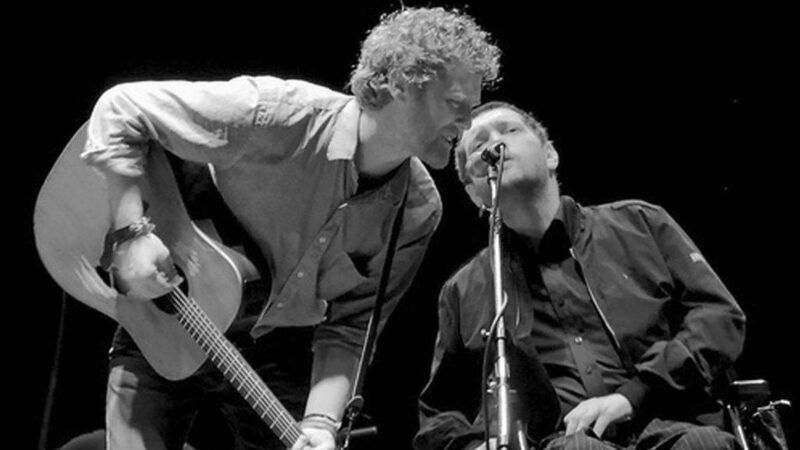Breaking Out: Film tribute to late great Cork singer Fergus O'Farrell

Breaking Out: The late Fergus O'Farrell, right, of Interference on stage with Glen Hansard.
The young man standing unsteadily at the mic was pale and frail, his long hair hanging bunched around his delicate features. But when he sang it was as if a draw-bridge had been kicked down and lifetimes of fury unleashed.
In the crowd at a pokey venue in Dublin was 15-year-old Michael McCormack. He had never experienced anything like the performance he witnessed that night. And in ways he would only later begin to understand, his life had changed forever.




